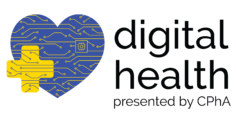Digital Health Corner Editor: Parisa Vatanka, PharmD, CTTS
 Digital health is thankfully here to stay. Meanwhile, the rate of nonadherence to medication regimens has not changed in 40 years – nearly 50% in year two of an asymptomatic, chronic illness, even with once a day, once a week or once a month therapy. Why? HOW we talk with patients has not changed appreciably. When presented with patients who don’t follow recommended regimens, too often persuasion and paternalistically delivered education are approaches health care professionals (HCPs) use to address these issues. These approaches cause patients to dig in even more and worse, they hurt our relationships with our patients. An opportunity exists to create synergy through the combination of digital health tools and motivational interviewing. An example follows.
Digital health is thankfully here to stay. Meanwhile, the rate of nonadherence to medication regimens has not changed in 40 years – nearly 50% in year two of an asymptomatic, chronic illness, even with once a day, once a week or once a month therapy. Why? HOW we talk with patients has not changed appreciably. When presented with patients who don’t follow recommended regimens, too often persuasion and paternalistically delivered education are approaches health care professionals (HCPs) use to address these issues. These approaches cause patients to dig in even more and worse, they hurt our relationships with our patients. An opportunity exists to create synergy through the combination of digital health tools and motivational interviewing. An example follows.
Mary Sinclair was diagnosed with asthma 20 years ago. Over the last two months, information from the sensor in her maintenance inhaler indicates that while her inhaler technique is good, she is not using the inhaler as prescribed, skipping days sometimes. Reliever inhaler use has increased. How do we approach Ms. Sinclair without causing defensiveness? “Ms. Sinclair, you have done a great job of using your chronic inhaler and controlling your asthma. I noticed from data provided by the sensor in your maintenance inhaler that usage has dropped. Are you having any problems using your maintenance inhaler?” Ms. Sinclair responds, “My asthma is ok. I resent you spying on me.” Pharmacist, “I sure don’t want you to feel spied on. I am concerned any time a patient skips doses of her maintenance inhaler. I noticed that you have been using your reliever inhaler more which makes me think that you’re having some breathing difficulties.” Ms. Sinclair, “Look, I’ll start using my maintenance inhaler every day again. Sometimes, I get tired of knowing that I have asthma. Then I get reminded when I can’t breathe well and enjoy life.” Pharmacist, “Doesn’t feel great to rely on medication all the time.” Ms. Sinclair, “No, it doesn’t. But I’ll do it.” Pharmacist, “I’m glad to hear that. I hope your medicine can be a means for you to enjoy your life.”
In this example, motivational interviewing responses increased the probability of the maintenance medication being used. Even if the patient continued to push back, the response must be one of care, acceptance, and exploration. Ultimately, this is the patient’s decision. The bigger picture is critical. Mishandling this situation and hurting the relationship is not limited to this incident. The relationship is the leverage that gives HCPs the ability to influence patient decision making without being threatening. Maintaining a relationship of care and concern is needed to effectively address other conditions the patient may have. In the same light that HCPs are investing time to learn more about digital health, we encourage you to invest adequate time to learn evidence-based approaches, like motivational interviewing, to engage and support patients. The opportunity for synergy is boundless!
About the Authors
Bruce Berger is President of Berger Consulting, LLC and Emeritus Professor at Auburn University. He has developed comMIt (Comprehensive Motivational Interviewing Training for health care providers) and AU MITI (Auburn University Motivational Interviewing Training Institute) and AU MITI (Auburn University Motivational Training Institute. He has taught motivational interviewing in health care and methods for improving treatment adherence for over 30 years.
He was born in Cleveland, Ohio. Bruce received his BS in Pharmacy from The Ohio State University. After practicing pharmacy for two years he returned to Ohio State and received his Masters and Ph.D. in social and behavioral pharmacy. He taught at Ohio State before moving to West Virginia University in January, 1980. After two years at WVU, Bruce moved to Auburn University and taught there until his retirement from the university in September of 2009.
His research interests include health behavior change and improving treatment adherence. He has written three books, written or presented over 900 papers (88 peer reviewed) or seminars (94 peer reviewed) on these topics. He has attracted over $3.5 million in funding to support his research.
He has been a consultant and trainer for the US Air Force, VA, US Army, Pfizer, Inc., Procter & Gamble, Abbvie, Novartis, Astra-Zeneca, Sanofi-Aventis, GSK, and over 50 health plans, including Humana, Harvard Pilgrim, Tufts Health, ConnectiCare, Medical Mutual of Ohio and numerous BlueCross BlueShield plans.
He is the recipient of numerous awards, including the Lyman Award and the first American Association of Colleges of Pharmacy’s Award of Excellence for his research. He is the 2001 recipient of the Jack L. Beal Post baccalaureate Alumni Award from the Ohio State University.
In March of 2004 Bruce was awarded a fellowship by the American Pharmacists Association (APhA) Academy of Pharmaceutical Research and Science for a lifetime of quality research.
Bruce is the 2007 and 2009 winner of the APhA Wierderholt Prize for the best research publication in the social, behavioral, and administrative sciences in pharmacy in the Journal of the APhA. The first study focused on the impact of motivational interviewing.
Bruce is the 2009 recipient of the American Association of Colleges of Pharmacy’s Robert Chalmers Distinguished Pharmacy Educator Award, one of the Association’s three highest honors.
Bruce is the author of the book, Motivational Interviewing for Health Care Professionals: A Sensible Approach, APhA, Washington, DC, August, 2020, 2nd edition, and the 8 hour accredited Motivational Interviewing E-Learning Program for Health Care Professionals (2015), along with William A. Villaume.
Parisa “Risa” Vatanka, PharmD, CTTS is a thought leader and strategic thinker with 27+ years of experience creating novel health care delivery solutions from concept to marketplace. She has a proven record of alliance building and is a key contributor and facilitator, with keen ability to bridge efforts among diverse internal and external cross-functional groups. Risa’s background includes heading high-visibility initiatives implemented nationwide and globally. She is currently championing health care delivery optimization through digital health integration.
Risa is Senior Director of Corporate Alliances at the American Pharmacists Association (APhA). She holds a faculty appointment at the University of California, San Francisco (UCSF) School of Pharmacy and volunteers as a tobacco treatment specialist at the UCSF Fontana Tobacco Treatment Center. Risa is an elected leader on the California Pharmacists Association (CPhA) Board of Trustees, Editor of the Digital Health Corner e-newsletter, and Founder/Chair of DHX Virtual (digital health conference).
Risa is a graduate of the University of Kansas, School of Pharmacy. Her professional training includes completing a Post-Graduate Year 1 (PGY1) Pharmacy Practice Residency at UCSF, a PGY2 Administrative Pharmacy Residency at Stanford University, and two externships with the United States Public Health Service (USPHS) Indian Health Service (IHS). Risa is a Certified Tobacco Treatment Specialist (CTTS), trained at the Mayo Clinic Nicotine Dependence Center. These experiences instilled in Risa an appreciation of the tremendous value of a team-based, patient-centered approach to care to foster health promotion and disease prevention, ultimately contributing to a healthier society.

